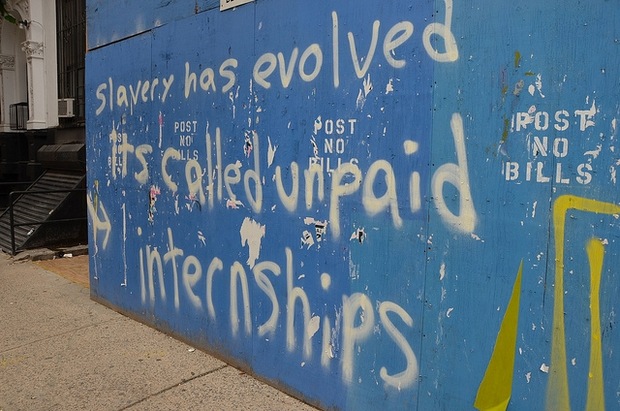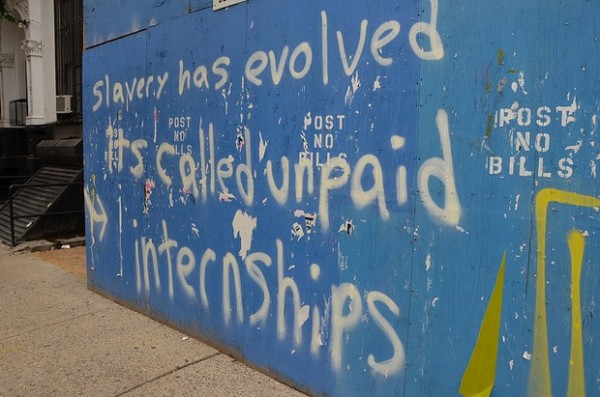‘Over the last decade employers are reaching for the unpaid internship first as a way of getting recent graduates and not having to pay anything to train them’
HALIFAX (CUP) — At this point his words are almost famous among young people.
“If your parents are letting you live in the basement,” said Bank of Canada Governor Stephen Poloz on Nov. 3, “you might as well go out and do something for free to put the experience on your CV.”
He was speaking about unpaid internships students and recent graduates take on when they’re unable to find work. He defended his opinion the next day to a House of Commons finance committee when questioned about how poorer graduates could afford to work unpaid internships.
“I still think that when there are those opportunities,” said Poloz, “one should grab them.”
Similar placements are sometimes mandated by university or college program for educational work experience. Currently the exact number of people doing such work is unknown, as Statistics Canada doesn’t collect that information in its Labour Force Survey.
In October, youth unemployment was 12.6 per cent, down slightly as fewer young people look for work, said Statistics Canada. According to a recent Conference Board of Canada survey, employers said applicants and new hires lack essential skills, such as communication, critical thinking and teamwork. That same report shows companies invested 40 per cent less money in on-the-job training from 1993 to 2010. Current opportunities, it says, for “workplace training … are limited, declining and of questionable impact.”
Karen Foster, a sociology professor at Dalhousie University, said unpaid internships have become a replacement for that training.
“Over the last decade employers are reaching for the unpaid internship first as a way of getting recent graduates and not having to pay anything to train them,” said Foster, who studies economics and youth. “They’re essentially putting all their risk on young, recent graduates.”
Advocates say unpaid internships are unfair and illegal. Courts seem to agree. Recently in the U.S. major media company Condé Nast agreed to pay $5.8 million to settle a class-action lawsuit by 7,500 former interns. Condé Nast owns several media brands, including magazines the New Yorker and GQ. Canadian unpaid internship programs have taken a hit, too. Just this summer in Canada Bell Aliant shut down its unpaid internship programfollowing court action from ex-interns.
The matter has reached Parliament. In June, NDP MPs Laurin Liu and Andrew Nash proposed an amendment to the Labour Act to include unpaid interns as employees. That means interns would be, for example, covered by workplace safety laws and protected from sexual harassment.
Liu said the bill is inspired by Andrew Ferguson, an intern who died in 2011. He fell asleep at the wheel after working an overnight shift at an Edmonton radio station.
“I believe that interns need to benefit from at least basic protections,” said Liu, 24. “Most of my friends, most of my peers, have recently graduated from university and many of them are working in unpaid internships. I’ve seen how they themselves are vulnerable.” The bill goes to second reading in early February.
To raise awareness, Alex Dawson, a English and theatre graduate, is using her own interning experience to produce a comedic web series called Turning Intern. Her group of former interns just raised over $3,000 to professionally produce the videos. Dawson did her first internship after completing a copywriting certificate, and has since left the field.
“The foundation of this industry, the copywriting industry, relies on the unpaid work of talented young people,” she said. “That really made me mad.”
Dawson, 25, now works in marketing and accounts management at a job which, she said, combines skills from her previous internships and contract work. She’s paid and puts in reasonable hours. At her unpaid internship, Dawson said she worked long days.
Government has “no shortage of policy solutions,” said Foster, to improve working conditions for interns.
“But they have to be enacted,” said Foster, “instead of just saying, ‘Well, it’s up to the individual to fight over the very last low paid job or unpaid internship.’



